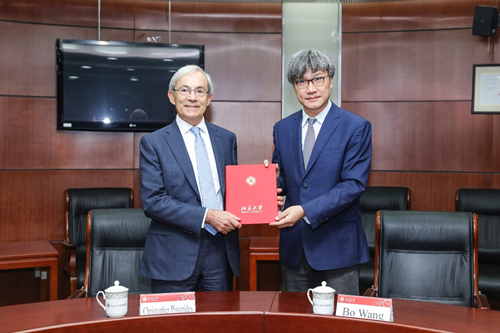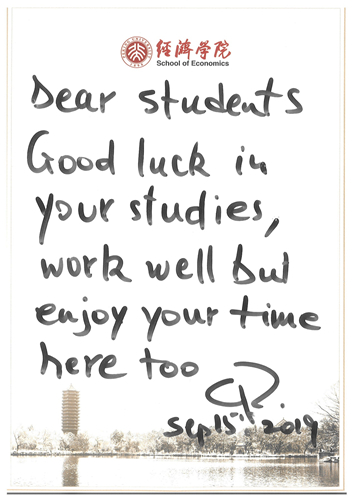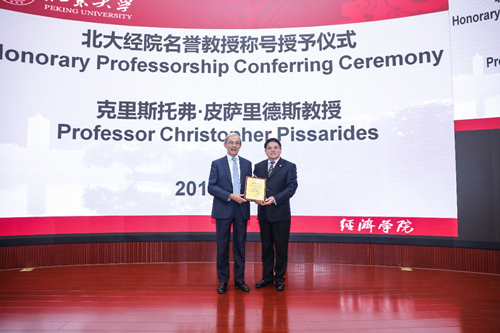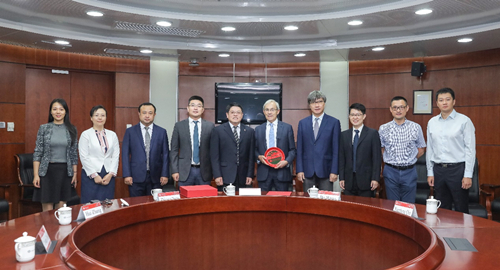Peking University, Sept 23, 2019: On September 15, Awardee of 2010 Nobel Prize in Economics, Professor of Economics at LSE, Christopher Pissarides visited PKU School of Economics and lectured at the events of “Lectures to Freshmen” and “Face-to-face with Nobel Prize Winners.”
At 9 am, PKU Vice President Wang Bo, on behalf of the university, met with Pissarides and presented him with a certificate as an acknowledgment of his participation in the lectures. Dean of School of Economics Dong Zhiyong introduced the history and development of the school and presented a souvenir to Pissarides.

Presenting the lecturer certificate
Before the speech to freshmen, Pissarides left words for students that expressed his hope and expectation for their studies and life. In his keynote speech entitled “The Future of Work in the Age of Robots and Artificial Intelligence,” he pointed out that though there had been research on artificial intelligence in the 1950s, its commercialization had only recently started. The development and application of new technologies presented to be a challenge of national industrial restructuring, said Pissarides, but there would be “Job Creation” as well as “Job Destruction” in the labor market. He believed in industries that required emotional interaction and more elaborate operations, robots would not substitute practitioners with higher education.

Pissarides’ words to students
Towards the end of the event, Dean Dong Zhiyong conferred on Pissarides the certificate of Honorary Professorship of PKU School of Economics.

Conferring the certificate of Honorary Professorship
In the afternoon, Pissarides attended the “Face-to-face with Nobel Prize Winners” event at the School of Economics and gave an academic report entitled “Productive Robots and Industrial Employment in Ten Countries.” In the report, Pissarides pointed out that the technological impacts of robots and artificial intelligence could cause labor to flow between different departments and industries. He emphasized that job creation depended on the economic structure of a country, the availability of skills of workers, and their willingness to learn new technologies, rather than the technological capital of robots. In the Q&A session, Pissarides answered questions concerning the substitution of robots for humans, the extension of theoretical models, the availability of AI data, and so on.
During the ensuing dinner, Pissarides met with the young faculty representatives of the School of Economics and exchanged ideas about personal experiences, research directions, and latest projects. Professor Pissarides shared his views on machine learning, artificial intelligence, China’s economic growth, and labor economics. He also encouraged young scholars to study rigorously, explore popular or difficult topics, and persevere in their research.

The group photo
Written by: Harper Lee
Edited by: Wei Yunqi
Source: School of Economics (Chinese)